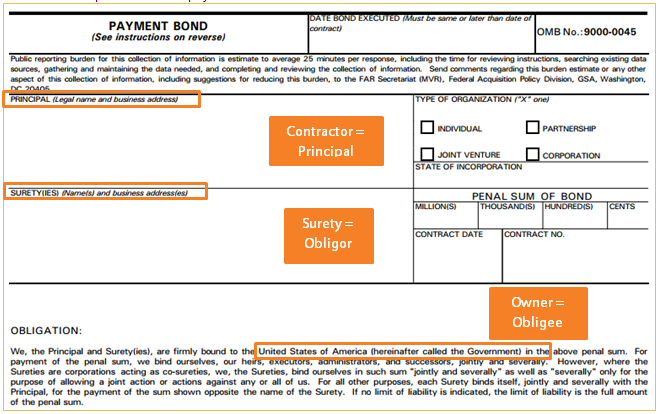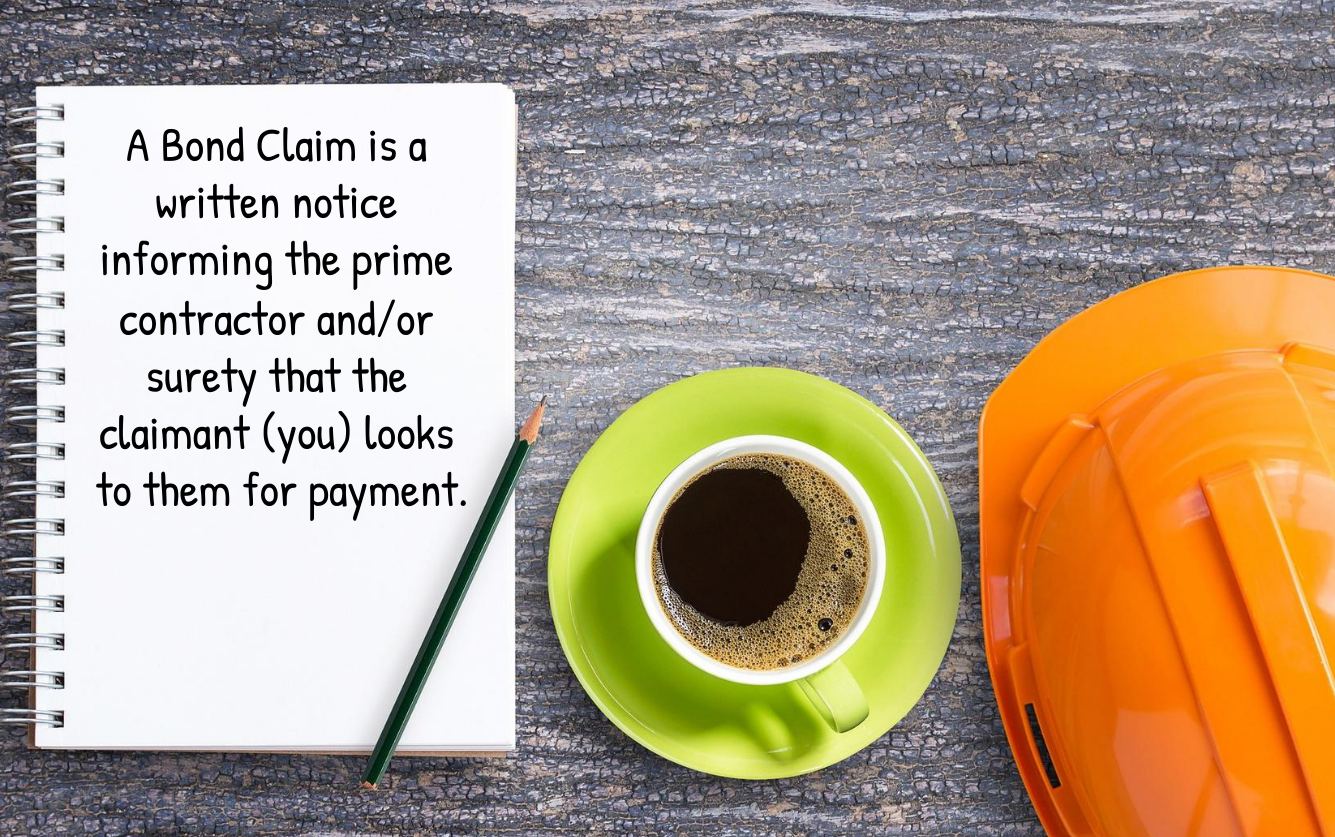A Contractor Supplied a Payment Bond & You Haven’t Been Paid, What’s Next?
You supplied materials to the project, served a preliminary notice as required by statute, have not been paid. Now what?
It’s time to make a claim against the bond. But, what is a bond claim? Whose bond are you going to claim against? Can you only claim against a bond if it is a public project? These are all great questions!
Before we explore and explain a bond claim, we need to define what a bond is and who the parties within the bond are.
What is a Surety Bond?
The Surety Information Office (SIO) defines a surety bond as “…a written agreement where one party, the surety, obligates itself to a second party, the obligee, to answer for the default of a third party, the principal…”
“Contract Surety Bonds provide financial security and construction assurance on building and construction projects by assuring the project owner (obligee) that the contractor (principal) is qualified to perform the work and will pay certain subcontractors, laborers and material suppliers”
A payment bond is a surety bond that is issued as assurance of payment to certain parties should the principal of the bond breach their construction contract. If a subcontractor, supplier or materialman is unpaid for services, they may secure their receivables by serving a claim against the payment bond.
Here is an example of a federal payment bond:

Don’t get confused: a payment bond and a performance bond are two different bonds, though they are often issued together. The payment bond protects you when the contractor fails to pay; the performance bond protects the obligee when the principal fails to perform.
Bond Claims, Explained
A Bond Claim is a written notice informing the prime contractor and/or surety that the claimant (e.g. subcontractor, supplier or materialman) looks to them for payment. Based on state statute, typically the bond claim must be served upon the general contractor and the surety, however, it is recommended to serve a copy of the bond claim on all parties involved. The more people that know you have not been paid, the more pressure these people will put on the appropriate party to encourage payment.
Frequently, a bond claim notice must be served within 90 days from last furnishing materials or services (e.g. Arizona). However, some state statutes, such as in Colorado, refer the claimant to the terms of the payment bond. (i.e. “Serve the bond claim notice in accordance with the terms and conditions of the payment bond.”)
Are All Contractors Required to Obtain a Bond?
The short answer is “No.”
Each state has its own statute requiring payment bonds on public projects and the Miller Act applies to payment bonds required on federal construction projects. Some statutes may require the general contractor obtain a payment bond on every construction project, and other statutes may only require a payment bond when the total value of the construction project exceeds a certain threshold.
True or False? Bond claim remedies are only available on public or federal projects.
False! Payment bonds may be required or obtained for any project type. In fact, there are several states that have separate statute specific to bond claims on private projects: Arizona, Arkansas, California, Florida, Georgia, Kansas, Louisiana, Mississippi, Nebraska, South Carolina, Texas, Utah & Wisconsin.
While a payment bond might not be required by statute on a private project, statute may apply as to the steps required to protect your rights under the private payment bond. Further, it is possible that a subcontractor may be required, by the owner or the general contractor, to obtain a payment bond on a project!
Best Practice Tips
- If a there is a payment bond on the project, attempt to obtain a copy of the bond at the time of contract.
- Confirm the surety is on the Department of the Treasury’s Listing of Approved Sureties.
- Review the payment bond to ensure you are covered as a potential claimant.
- Serve applicable preliminary notices in accordance with statute.
- If you remain unpaid, serve a copy of the bond claim upon all parties.
- Keep all project documentation in a central location (e.g. invoices, delivery tickets, statement of account etc.)


